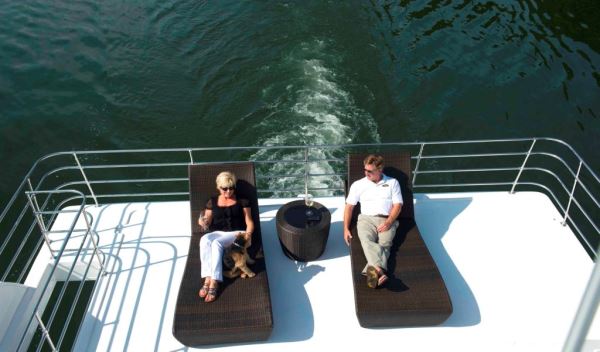
Once you’ve decided to become a houseboat owner and done all your research on the overall costs, it’s time to start looking at your financing options. If you can afford to pay cash for a boat, you will save yourself the interest and paperwork. But if you need help, there are banks out there that are set up to handle marine loans. In order to find good rates and better service, you'll want to find someone who specializes in these types of loans.
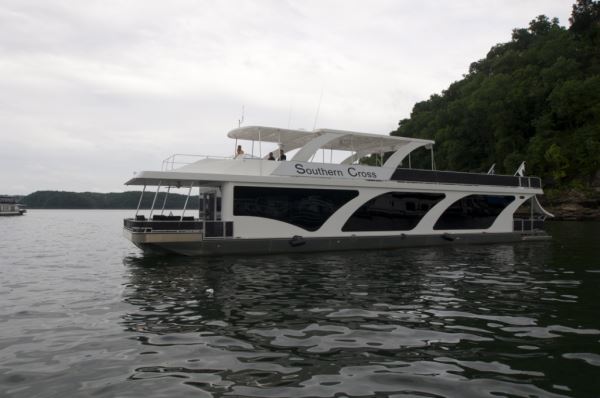
Monticello Banking Company in Monticello, Ky., is one those banks. They will gladly loan money for a houseboat to qualified buyers.
“Houseboats are luxury items and are held to a higher standard,” says Helen Dolen, vice president of Monticello Banking Company. “You must have excellent credit ratings, low debt to income, strong financials and at least 20 percent down payment.”
Another bank currently offering houseboat loans is Community Trust Bank in Campbellsville, Ky.
“It is normally not more difficult to get a houseboat loan. We have a local decision process in place for our products,” says Community Trust Regional President Ricky Sparkman. “Therefore, we are able to respond promptly to our customers.”
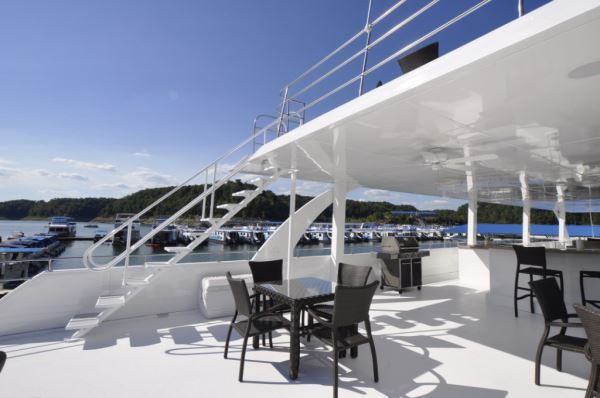 If you decide to borrow money to purchase your boat, make sure you do your homework and understand the costs associated with loan. As you prepare to apply for a loan, pay your bills on time because your credit score is very important in any loan process. A better credit score means a better interest rate and will save you money. Start collecting your financial statement and at least two year’s tax returns. If you are a self-employed applicant, you can still qualify but you will have to provide additional documentation. A good bank will let you know exactly what you need so you can put it all together before you head in to talk to your loan officer.
If you decide to borrow money to purchase your boat, make sure you do your homework and understand the costs associated with loan. As you prepare to apply for a loan, pay your bills on time because your credit score is very important in any loan process. A better credit score means a better interest rate and will save you money. Start collecting your financial statement and at least two year’s tax returns. If you are a self-employed applicant, you can still qualify but you will have to provide additional documentation. A good bank will let you know exactly what you need so you can put it all together before you head in to talk to your loan officer.
Home Loan vs. Boat Loan
There are a few differences in home loans and houseboat loans. As you probably already know, home loans can be spread out over up to 30 years. For a brand-new houseboat, the maximum repayment time is twenty years. If you're buying a used houseboat, you will have to subtract the age of the boat from the term of the loan which you aren’t required to do on a home.
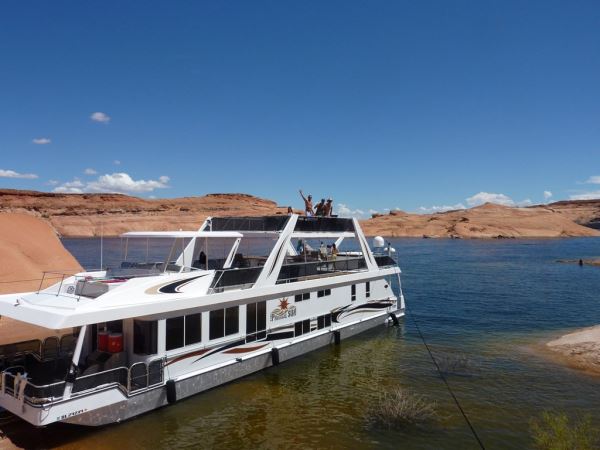 “I do think it is much easier to qualify for a home loan than a houseboat loan,” says Dolen. “However, houseboat loans close more quickly than homes on the secondary market.”
“I do think it is much easier to qualify for a home loan than a houseboat loan,” says Dolen. “However, houseboat loans close more quickly than homes on the secondary market.”
Typically, you can expect to pay at least a point higher than mortgage loans. If you buy a $50,000 houseboat and finance $40,000 of the final price over 15 years with a 7.5% interest rate, your monthly payments will be about $370 per month. The good part is that if your boat has a galley and a head, the interest is tax-deductible, just as with a mortgage for your house.
“The product we at Community Trust offer is very similar to our In-House Mortgage Loan Products,” says Sparkman. “However, our turnaround time is generally faster for houseboats.”
Get A Survey
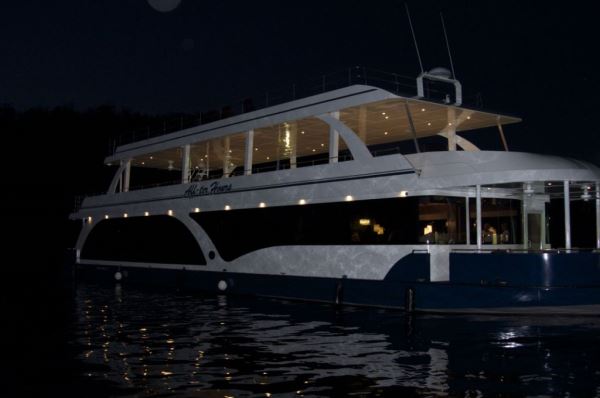 Marine surveys are required prior to the loan closing. A quality survey will benefit both you and the bank, informing you of any problems that will be difficult or expensive to fix. Marine surveys will cover the structural integrity, electrical systems, the propulsion system, the fuel system, other machinery, navigation equipment, miscellaneous on-board systems, cosmetic appearance, electronics, and overall maintenance as well as an out-of-water inspection and overall condition of your houseboat.
Marine surveys are required prior to the loan closing. A quality survey will benefit both you and the bank, informing you of any problems that will be difficult or expensive to fix. Marine surveys will cover the structural integrity, electrical systems, the propulsion system, the fuel system, other machinery, navigation equipment, miscellaneous on-board systems, cosmetic appearance, electronics, and overall maintenance as well as an out-of-water inspection and overall condition of your houseboat.
“Marine surveys are expensive so make sure you secure financing on the boat and check into the insurance before it is ordered,” says Dolen.
A pre-purchase survey is the most comprehensive type of inspection, which is why it’s required by the bank before they will process your loan.
Insurance
Most, if not all, marinas require liability insurance. Liability coverage provides financial protection in case you are at fault for bodily injury or property damage while using your boat. If you do opt for financing, you will have to buy comprehensive coverage that will protect your investment in case of theft, storms, fire, sinking, collision, capsizing, and vandalism and so on.
While researching houseboat insurance, find out your rights as an insured customer because it will help you understand the limitations of your policy. Things to pay particularly close attention to are:
- The frequency with which your insurer will conduct marine surveys
- The navigational limits under which your houseboat will be covered
- The discounts provided by your insurer if you live on your houseboat only for some months in the year
- The deductible on your policy
- The scope of coverage to handle the additional liabilities arising from living in the houseboat
- The coverage provided for dinghies or PWCs. Some policies include these boats for free or for much less than a separate policy would be
- Any discounts offered if you complete courses by the Coast Guard Auxiliary, Power Squadron, Red Cross or other safety training organizations
An insurance policy that provides you with the coverage you need for your houseboat is important. You need to be covered when an incident happens because of the money you’ve put into your beautiful second home.